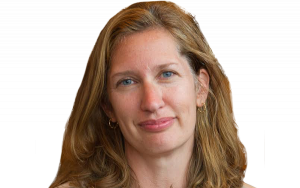Response: Yes, Charter Schools Inflict Some Costs on Districts. But Districts’ Financial Problems Are Far Deeper Than That

Updated May 24
I recently wrote an essay explaining fundamental flaws in a paper by Gordon Lafer, a professor and longtime labor union analyst who published through an Oakland, California–based think tank called In the Public Interest. I explained that the analysis failed to follow even the most basic requirements for a balanced analysis of the impact of charter schools on school districts.
Among the most significant flaws in the paper:
● An inflated account of costs imposed by charter schools that assigns all basic cost drivers, such as pension liabilities and district management decisions, to charters.
● Failure to account for sources of enrollment change other than charter schools, though districts regularly experience enrollment losses and gains to surrounding districts and demographic shifts.
● Failure to recognize, and account for the fact, that when students choose to leave one public school, the funds for educating that student are intended to go to the public school that is educating them. That is the most equitable public policy for any district-to-district, district-to-charter, or charter-to-district transfer with the public education system.
The author responded that I was arguing that there is no cost to districts and that I don’t want legislators to take costs into account. Not true. In fact, the original paper quoted me demonstrating that there are costs to districts, and showing both how districts could adapt spending to protect school quality and how local leaders could help.
I don’t think the costs are zero. And I definitely want legislators to take real costs — instead of inflated ones — into account.
We at the Center on Reinventing Public Education have also suggested ways that district and state officials can distinguish between costs that are real and those that are called “costs” but are changeable over time with thought and initiative. We have also suggested that charter schools should help districts adjust to enrollment declines and be willing to consider altering their activities based on open discussions and fair give and take. But that is not likely to happen if step one is that claims about district costs are hyped.
Readers can see our extensive treatment of the topic here.
Robin Lake is director of the Center on Reinventing Public Education as well as affiliate faculty at the School of Interdisciplinary Arts and Sciences at the University of Washington Bothell.
Get stories like these delivered straight to your inbox. Sign up for The 74 Newsletter

;)
